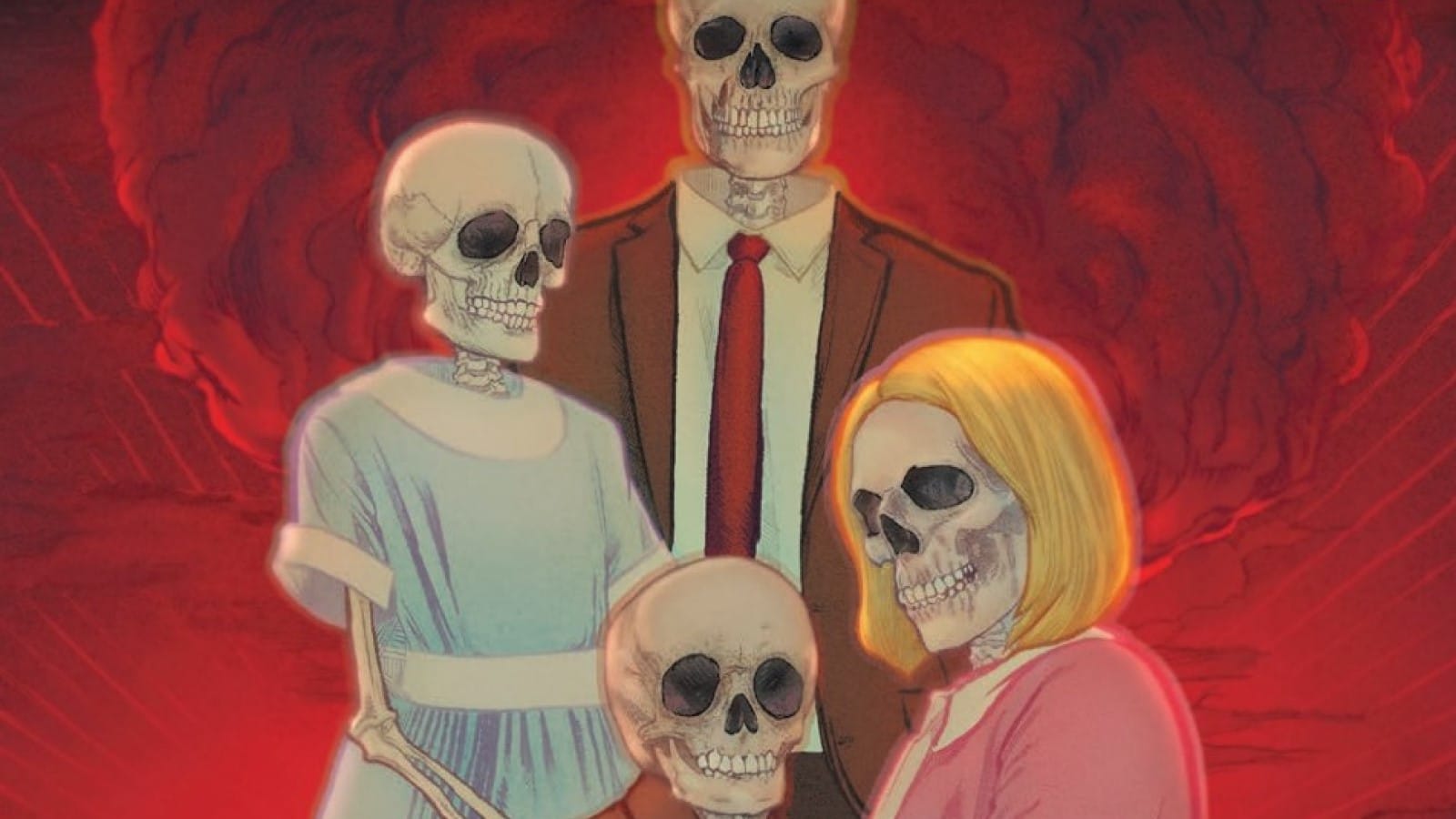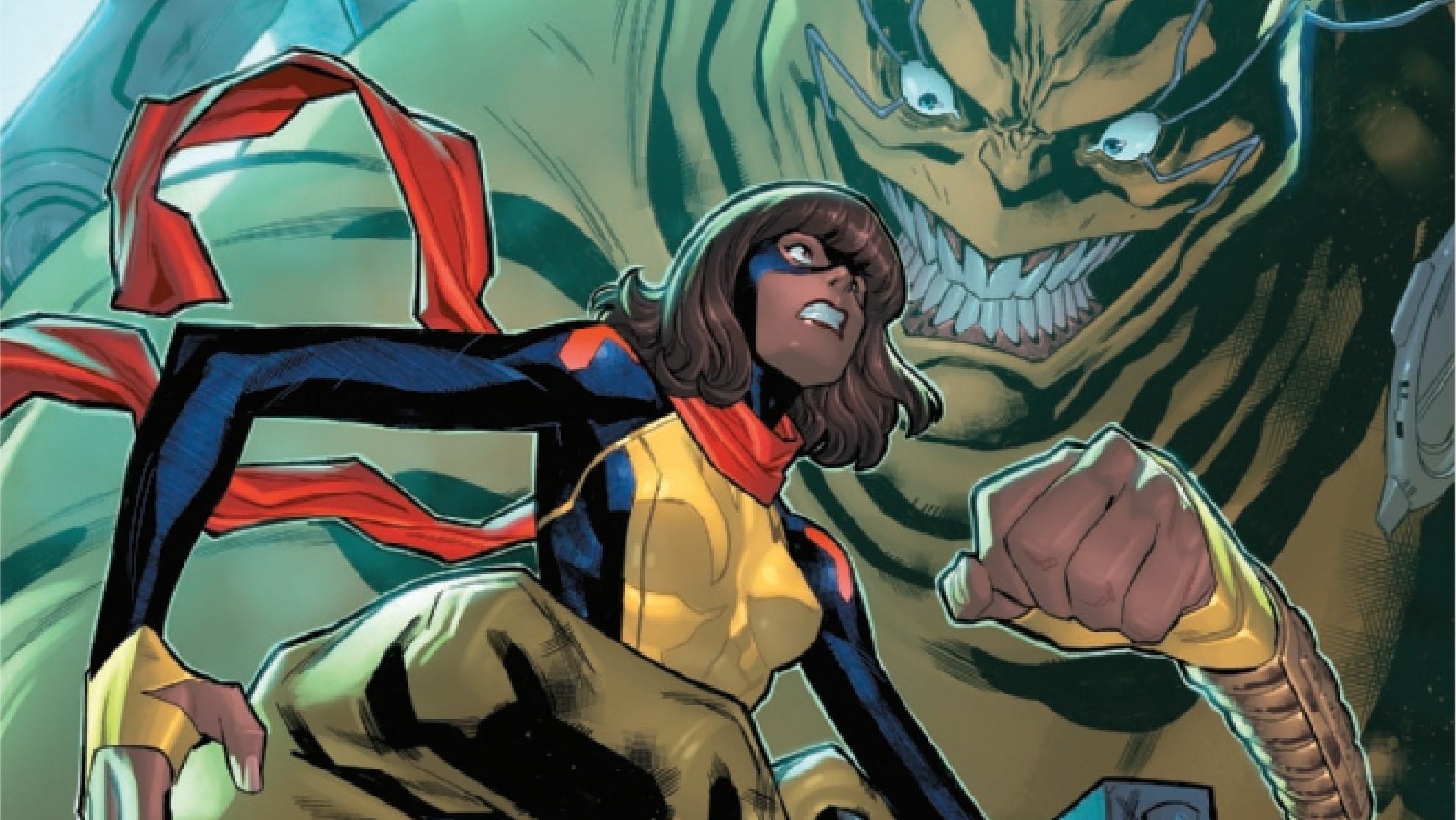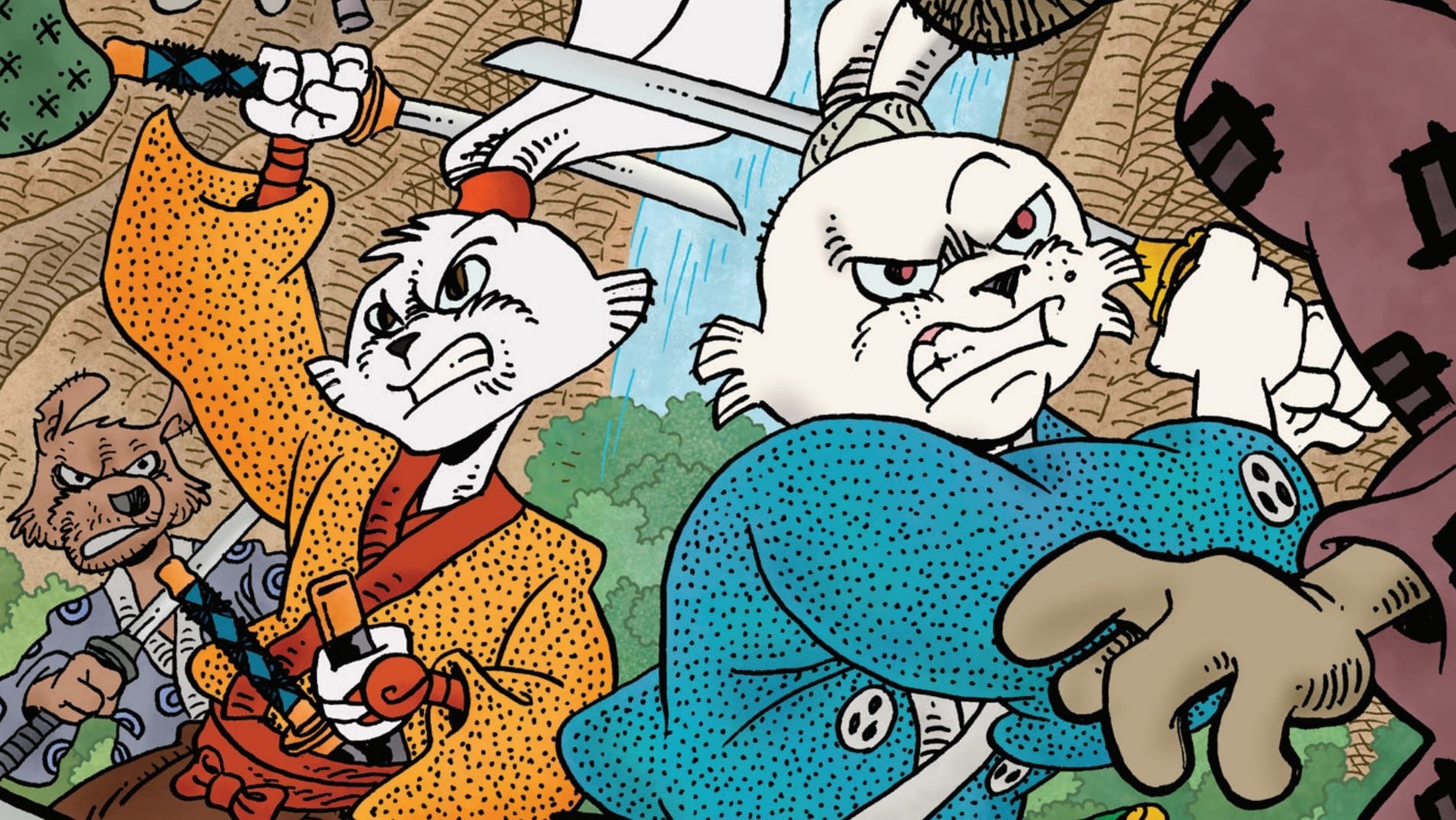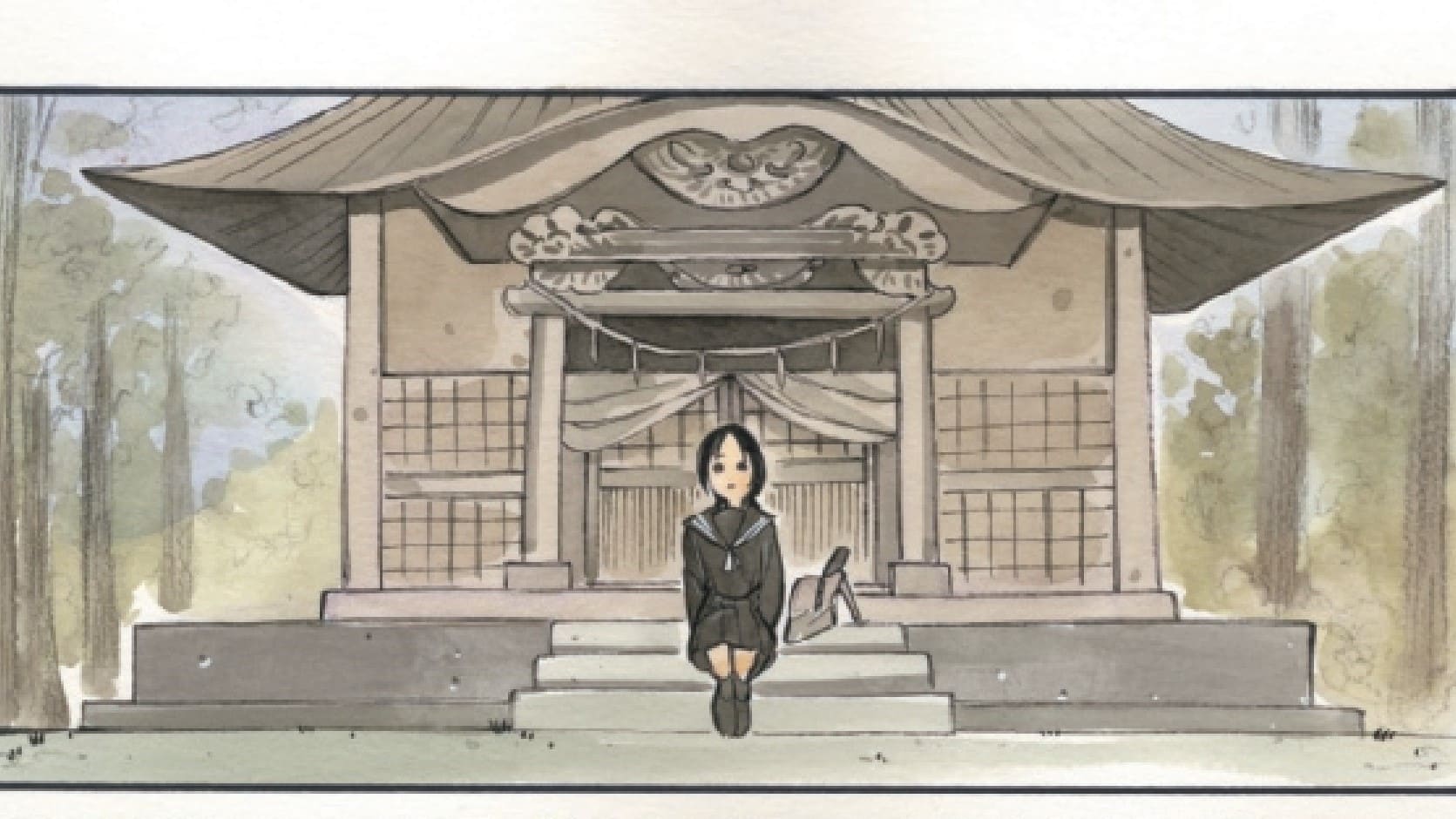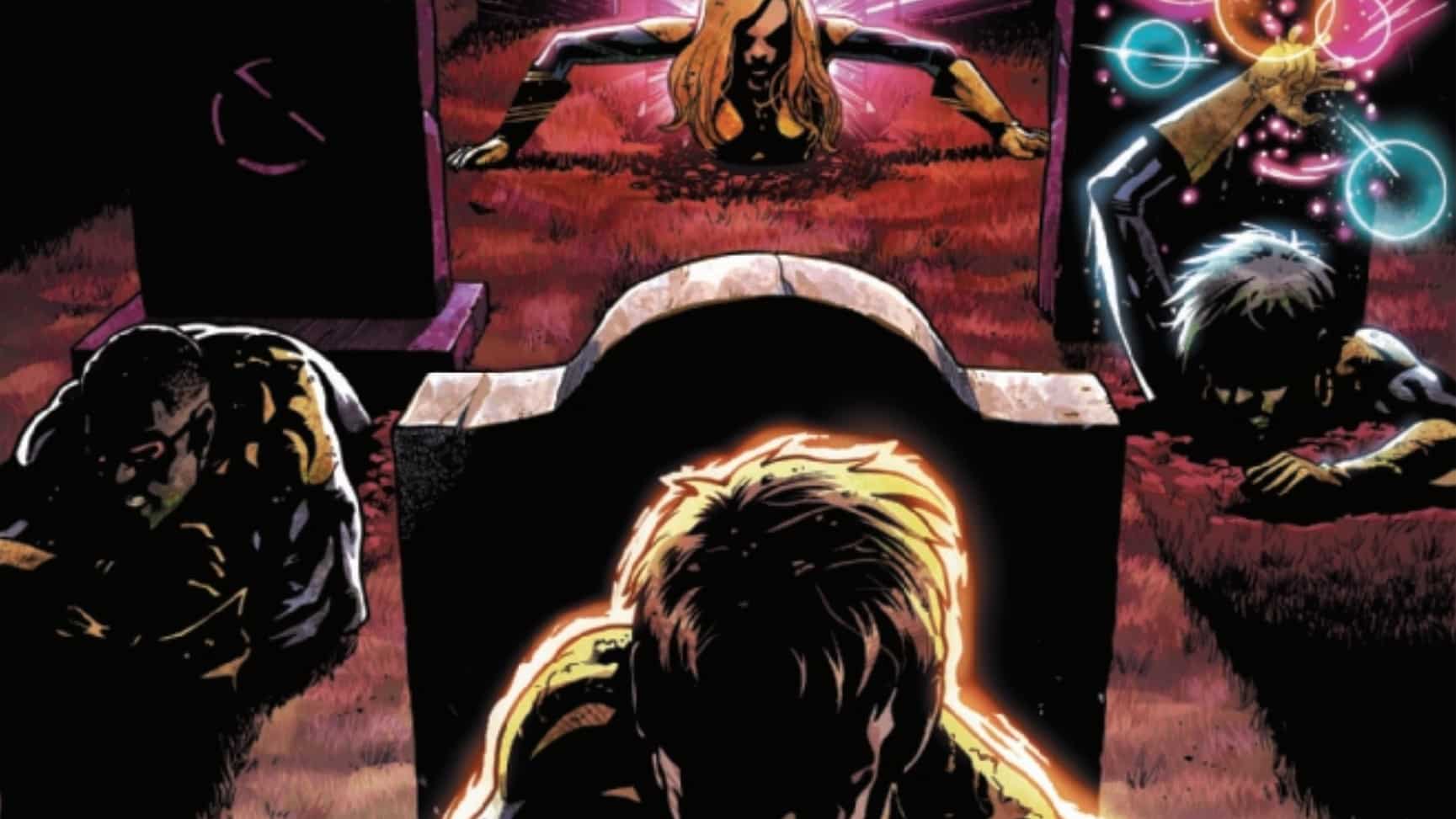More bombs fall, a handsome boy dies and a house and a plot of land try to get back to a time when the Russians weren’t pouring down death on America in Nuclear Family #5 by writer Stephanie Phillips, artist Tony Shasteen, colorist JD Mettler, letterer Troy Peteri and publisher AfterShock. Based on a short story by Philip K. Dick.
Will Nevin: Forrest, let me start by telling you a story. When Ari Bard and I set out to review the first issue of Haha — W. Maxwell Prince’s other weird and great anthology series over at Image — it was clear that a reading of Herman Melville’s “Bartleby, the Scrivener” would give depth to the discussion. I gave the Wikipedia article a glance (because if I’m reading a Melville short, it’s going to be “Benito Cereno” on account of FOLLOW YOUR LEADER), but Ari went off and read the damn thing; I don’t think our analysis suffered for my laziness, but who’s to say? All that said, last time out, I made a commitment to read “Breakfast at Twilight,” the Philip K. Dick story that inspired our series, and I’m happy to report that I did it. (Well, I’m going to do it by the time we get to the discussion. I swear.) I read a prose piece. Aren’t you proud?
Forrest Hollingsworth: Dick turned “Breakfast at Twilight” into his literary agent on Jan. 17, 1953. It was a Saturday, 68 years or 24,992 days ago that set a series of events into motion. A series of events that would lead to my friend Will reading prose, and for that I am thankful.
Will: That length of time? Almost nice. The agenda today is brief but meaty: We’re gonna finish talking up this series with its final issue, and then we’re going to turn our attention to the original Dick piece. Sound good?
Forrest: Sounds better than nuclear war at least!
Will: My god. Am I that awful to work with?
With a Bang but Also Kind of a Whimper

Will: I think the most I can say about this series conclusion is that it satisfactorily ends the series. We get to where we need to go by the end; everything is logical, and I can’t point to any specific problems. But there’s nothing really surprising or interesting along the way. I don’t suppose I need any nonsensical twists or similarly forced Shyamalian surprises, but damn — give me something aside from trotting briskly from point A to B to C to END. Like, we didn’t even get any shenanigans with zombie Dan.
Forrest: The one thing I want to grant Nuclear Family before we get into the minutiae here is that from a top level, I do think it was successful in creating a take on an old story that both retains the major points of the source and finds ways to iterate on it both tonally and structurally without dismission.
Will: I agree with you there — this series is a good read and a neat lil’ comic. But two exceedingly minor points I wanted to discuss with you before we turn to the bigger issue with this issue and maybe this series. First, I think we were dead fuckin’ on with Roger. While he wasn’t a narc, he was a one-dimensional time suck of a character.
Forrest: He’s not a narc, he just has a Captain America complex. He’s narc-adjacent. This is a compliment. Kind of.
Will: OK, the second stupid thing I wanted to talk about: Could you figure out why the distinction between 1957 and 1958 matters? After reading the first issue, I chalked it up to a continuity goof, but here, I think the governor says the bombs fall in ’58. But we see the family in ’57 as everything goes boom, right? I can’t tell if this matters to the plot or if I’m stupid. Forrest, please help.
Forrest: I still think it’s a continuity error, but a very generous speculation might be that in keeping with “Breakfast at Twilight,” the idea is that the war is unavoidable. It just comes later.
Will: If there’s any answer to be had, I think you’ve got it there. And as we’ll get into (talk about unavoidable!), I think the short story handles that idea much better than the comic. Finally, let’s talk pacing here. We talked last time out about how #4 was incredibly decompressed — little to no time elapsed during the whole issue, and it didn’t seem to move the story ahead in any substantive way. But this is just a flat-out sprint to the finish. Like we concluded in my chat with Big Boss Zack on Knock ’Em Dead, I don’t think this is something we can lay at the creative team — this is a problem with AfterShock. They have got to recognize when they need to break out of the five-issue mold, and while I don’t know immediately what I would have done differently here (Maybe an issue exploring the shitty bunker depths? Giving Roger something to do aside from be handsome and die?), I think this could have been plotted a bit differently to express this story in a better and more in-depth way.
Forrest: You’re right. We’ve discussed previously our concerns about wrapping up as expansive a story as this in five issues, and it turns out the only way to do that is to get very practical, to discard a lot of the existential and sociopolitical nuance that paints the earlier issues and dialogue, and to get real about the kinds of things you have to do to survive in the wasteland.
For my money, I think it’s a relatively one-note finale — too much time was spent on the zombie chase scene, the same as with the lab in the issue before — but it’s also a logical conclusion to everything Nuclear Family sets up and one that keeps some important narrative elements from Dick’s source material in place … with the caveat that Tim’s wife didn’t know he was tortured? What did she think he was doing!
Will: Dickin’ around, prolly.
I Did the Reading, I Swear

Will: So after reading “Breakfast at Twilight,” I’ve gotta say — it is both markedly worse and better than Nuclear Family, with the former owing to Dick’s strange decision to prattle on for paragraphs upon paragraphs of exposition in a relatively short piece and the latter coming from a much more impactful ending. I get the feeling that Dick started with his ending — what if there was a fella who knew there was nothing he could do to stop a fascist state and subsequent nuclear apocalypse? — and worked backward.
Forrest: I think the thing that can’t go unsaid is that “Breakfast at Twilight” is very much of its time, right? It’s a direct response to World War II, to the Korean War and to the rapidly expanding Cold War. Dick’s cynicism, or more appropriately weariness, is deserved given that context, and I think it makes for a compelling, meditative story. It’s about being trapped in cycles, but Nuclear Family is about trying to break them.
Will: The barest of bones are the same: We have a happy American home one moment, only to have it transported to a scorched hellscape the next. But most of the prose story is different; we never see the bombs fall, we never see the “undersurface,” as Dick puts it, and the setting is different, with Dick putting his story in the late ’70s rather than the ’50s. We also don’t have the framing device of the Korean War and Tim’s relationship with Dan (which I meant to bring up in our discussion of the series — I thought the war flashbacks worked well in #5). I think I could have really gone for a Nuclear Family set in a later time period … but that’s only because I’m nuts about The Day After. Forrest, what did you think of the big changes between the story and the series?
Forrest: I kind of like the cannibalization of Dick’s classical story and more modern cultural touchstones like Fallout or Snowpiercer into one thing. There’s a power in seeing the science, the structures and the times change but in seeing people remain the same — callous, conspiratorial and authoritarian — that I think is stronger in Nuclear Family.
Where it fails to capture the essence of “Breakfast,” I think, is in foregoing the bulk of the conversation about how the war is continuing. Dick belabors this point as the McCleans and the soldiers they come across discuss the routine of the bombs, the systematic destruction of land and people, that Nuclear Family at best glosses over. The persistence of war is an important theme both structurally and metaphorically, and Family goes a little too far in the direction of “people surviving in the apocalypse” to make that point.
Will: There are big chunks of “Breakfast at Twilight” — like the discussion between Tim and Mary about the relative merits of living in a post-war fascist state … what the fuck, y’all? — that are just asinine. But like T3, I think I’d keep the ending. Tim’s despondency in re: the nightmares awaiting the world are a perfect note to end a series on and much better than the “everything turned out great for everyone!” closing we got in Nuclear Family. Much like the zombie genre we talked about last time, no one should have a happy ending in a nuclear apocalypse.
Forrest: But I also appreciate Nuclear Family being more optimistic in turn because of that. It’s a complimentary piece to “Twilight” (not that one) in many ways. War persists, yes, but so does human compassion and hope. I kind of like it, in that regard. Though I do agree the inevitable fascist state is more likely … whoops!
Will: Whether it’s a bomb, pestilence or a boot on our neck, given a long enough timeline, we’re all fucked.
Living in the Fallout
- All timelines lead to Roger dying like a dork.
- Either the governor went back to where he was at the time, or he noped out of existence. Seemed slimy anyways.
- Zombie Dan shenanigans would have been fun.
- Go watch The Day After.

